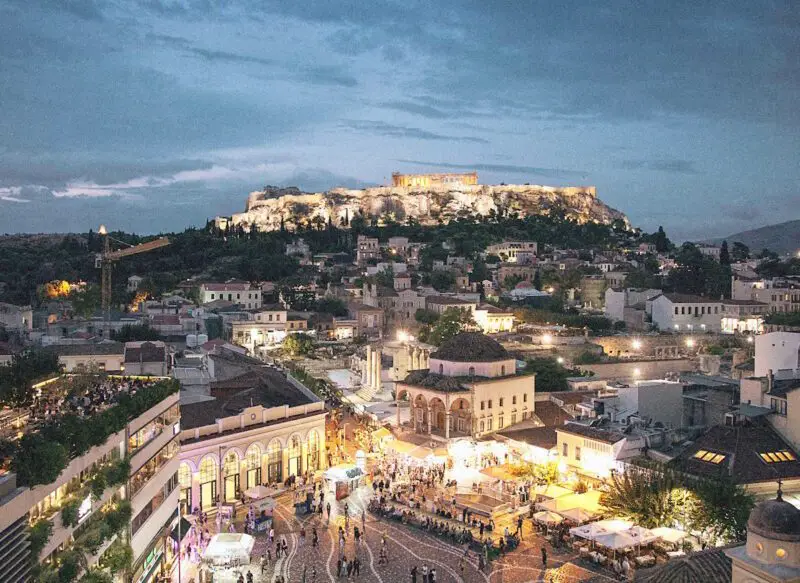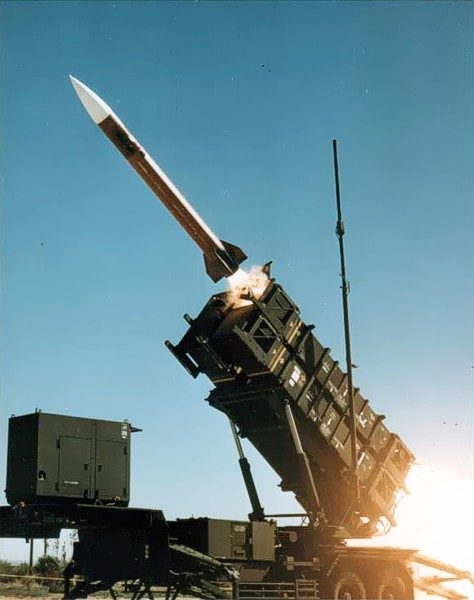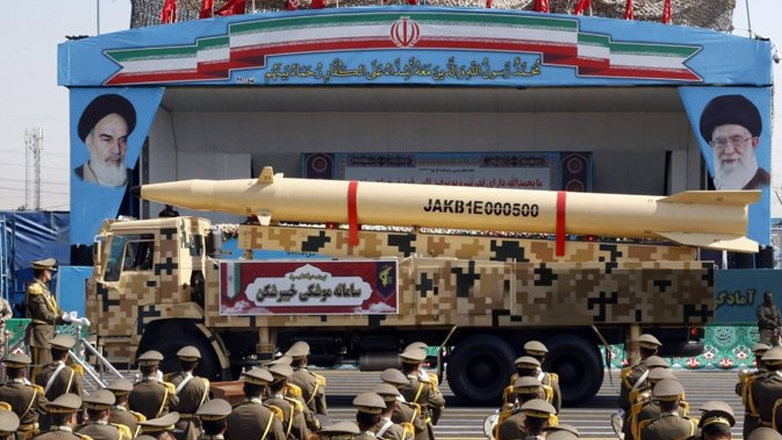Tensions in the Middle East have escalated after recent US strikes in Iran. This just piles onto an already fragile, tangled geopolitical situation, and you can almost feel the unease spreading across Europe and the Eurozone about what comes next for security in the region.
The crisis has also stirred up relations with the United States, and it’s touching on bigger issues—democracy, international cooperation, you name it. Governments in Greece and throughout Europe are watching closely, probably a bit anxious about what ripple effects might hit regional or even global stability.
Emergency Meeting of KYSEA (defence council) This Afternoon on Middle East Developments
The Governmental National Security Council (KYSEA) is meeting at 19:00, with Prime Minister Kyriakos Mitsotakis at the helm, to tackle the Middle East crisis. Security implications are front and center—rising tensions between Israel and Iran, worries about Iran’s nuclear arsenal, and the shaky Gaza ceasefire.
They’re also looking at how all this could shake up the broader geopolitical landscape and mess with regional oil stability. There’s a lot of uncertainty in the air right now.
The Greek government is on high alert after the US bombing of Iran’s nuclear sites. Their main focus is keeping a lid on things—peace, stability, and doing what they can to stop things from spiraling out of control.
An extraordinary KYSEA meeting was called for 19:00 under Prime Minister Mitsotakis. The goal: figure out what’s changing and what it could mean for security and energy supplies.
The Defence Minister has been sent to the Pentagon for urgent talks—coordinating responses and prepping for who-knows-what scenarios. Greece is clearly leaning into collaboration and building up strategic partnerships for energy security.
Key Priorities
- Self-restraint and calm—absolutely crucial to keep things from boiling over.
- Pushing for diplomatic initiatives to get people talking again.
- Backing policies that drive energy upgrades and open up new investment.
- Encouraging long-term development and growth through stability. It’s easier said than done, right?
Government’s Approach
Focus Area |
Actions Taken |
Expected Outcome |
|---|---|---|
National Security |
Emergency KYSEA meeting at 19:00 |
Comprehensive review |
Foreign Relations |
Defence Minister’s Pentagon visit |
Stronger international links |
Energy Sector |
Monitoring regional supply risks |
Support for energy upgrades |
Peacebuilding |
Call for self-control and dialogue |
Prevent regional conflict |
Greece keeps hammering home the need for cooperation and strategic readiness to protect national and regional interests. There’s a lot riding on measured diplomacy and not rushing into things—nobody wants to scare off investment or risk economic development right now.
Greece will not allow itself to be drawn into hostilities

The Middle East is, let’s face it, a region that never really leaves the headlines. Conflicts here seem to echo across borders, shaking up local economies and development efforts.
Recent tensions between Israel and Iran have only fueled more worry about the region’s future. What happens next is anyone’s guess, honestly.
Meanwhile, Greece is keeping its distance, making it clear there’s no intention to get tangled up in these disputes. Instead, they’re doubling down on local development and trying to hold onto some sense of stability.
This isn’t just for show—there’s real emphasis on growing the economy even when the neighborhood’s on edge. Can’t blame them for that.
No Involvement of Greece in the Israel-Iran Conflict
Thanos Kontogeorgis, Deputy Minister, didn’t mince words: Greece isn’t getting involved in the Israel-Iran standoff. He pointed out that Greece’s national strategy is all about steering clear of intervention.
Staying neutral is the name of the game. No military moves, no political meddling—just a careful watch from the sidelines.
Israel and Iran’s ongoing conflict has everyone on edge, not just in the region. Greece, for its part, is sticking to its guns—no involvement, period.
The government insists that Iran shouldn’t get its hands on nuclear weapons, but wants to see that solved at the negotiating table. The United States is expected to take the lead here, since Europe can’t really handle the crisis alone.
Key Points on the Crisis:
- Diplomatic solution: Absolutely necessary to keep Iran from going nuclear.
- United States’ role: Pretty much central to keeping things from boiling over.
- Greece’s position: Staying out of it, sticking to a principles-first foreign policy.
Economic and Regional Impacts
The fallout isn’t just political—shipping and tourism, both lifelines for Greece, could take a hit. Officials say they’re ready for whatever comes, whether that’s inflation or chaos in the shipping lanes.
Still, with things changing by the day, it’s tough to predict exactly how this will play out. Anyone who says otherwise is probably bluffing.
Sector |
Concerns |
Preparedness |
|---|---|---|
Shipping |
Route disruptions, costs |
Contingency plans in place |
Tourism |
Decline due to instability |
Monitoring the situation closely |
Economy |
Inflation, market uncertainty |
Fiscal tools ready for use |
Some say this instability is bound to have ripple effects everywhere. Realistically, no country is immune, but Greece’s recent economic track record offers a little breathing room—at least for now.
Political Context and International Relations
The situation is also reshuffling diplomatic cards. The United States, and names like Donald Trump, keep popping up, adding to the mess.
Inside Greece, opposition parties are watching every move the government makes, ready to pounce if things go sideways. Balancing international promises with homegrown interests isn’t exactly a walk in the park.
Security and Nuclear Issues
Nuclear worries are back in the spotlight after airstrikes on Iranian sites suspected of housing sensitive facilities. The idea of nuclear weapons getting involved is, frankly, terrifying.
World powers keep pushing for talks, not tanks. That’s the hope, anyway.
Ayatollah Ali Khamenei and Iran’s internal politics are wild cards in all of this. Keeping some kind of diplomatic line open, even when tensions spike, seems more crucial than ever.
Resilience and Future Outlook
Resilience is still front and center. Countries caught up in the conflict have to brace for economic shocks and security threats—no easy task.
There’s talk of shoring up fiscal policies, keeping crucial industries like shipping and tourism afloat, and trying to get some international cooperation going. It’s a lot to juggle, honestly.
Uncertainty hangs over everything. Governments are pushing for strategic readiness, but it’s hard to say what’s next.
The next few days and weeks? They could end up shaping the region’s stability and maybe even ripple out globally.
Athens on High Alert Amid Potential Iranian Strike at Souda Bay

Athens has raised its alert level to red, worried about a possible Iranian strike on Souda Bay in Crete.
The base is a linchpin for US and NATO ops, which makes it a pretty sensitive spot, especially with tensions running high in the Middle East.
The Greek government’s deployed Patriot missile systems at Souda Bay to boost air defenses.
Military and government officials scrambled for urgent meetings, hashing out defense readiness and response plans.
It’s all about protecting key assets and, frankly, hoping to keep any fallout from US-Iran drama at bay.
Key Points |
Details |
|---|---|
Location |
Souda Bay, Crete |
Threat |
Possible Iranian missile or drone strike |
Defence Measures |
Deployment of Patriot missiles |
Strategic Importance |
Supports US carrier strike groups, air mobility operations |
Recent Developments |
Increased US forces and equipment presence |
Athens is staying on its toes after intel hinted Iran might go after Israeli or Western interests nearby.
There have been attempts in Greece before, so people aren’t taking chances.
The whole situation feels pretty unpredictable, and there’s worry about how it could shake up migration or supply chains in the region.





